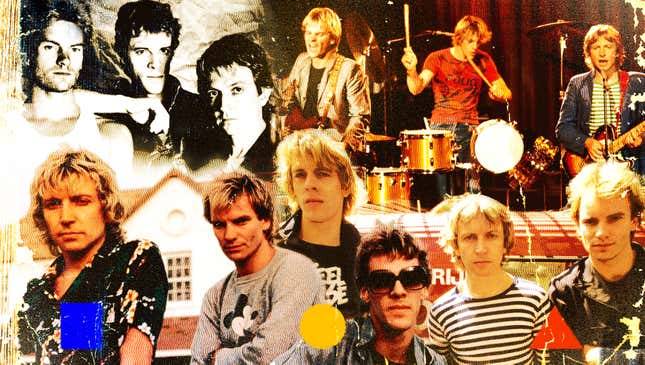
Forty years ago this summer, the Police released Synchronicity, the blockbuster album that capped their career. Although they had released their debut album Outlandos d’Amour less than five years earlier, the band was ready to call it quits, acknowledging they couldn’t replicate the runaway success of Synchronicity while also confessing that the trio of vocalist/bassist Sting, drummer Stewart Copeland, and guitarist Andy Summers couldn’t work in the same room together for much longer.
Today, their brief but rich legacy is a catalog filled with New Wave hits, classic rock staples, and genuine oddities that reveal the group’s true idiosyncratic character. Their swan song, Synchronicity, is a complex, contradictory album but its polished peculiarity doesn’t exist in a vacuum. Rather, it serves as a fitting cap for the Police, whose body of work remains inventive and intriguing all these years later.